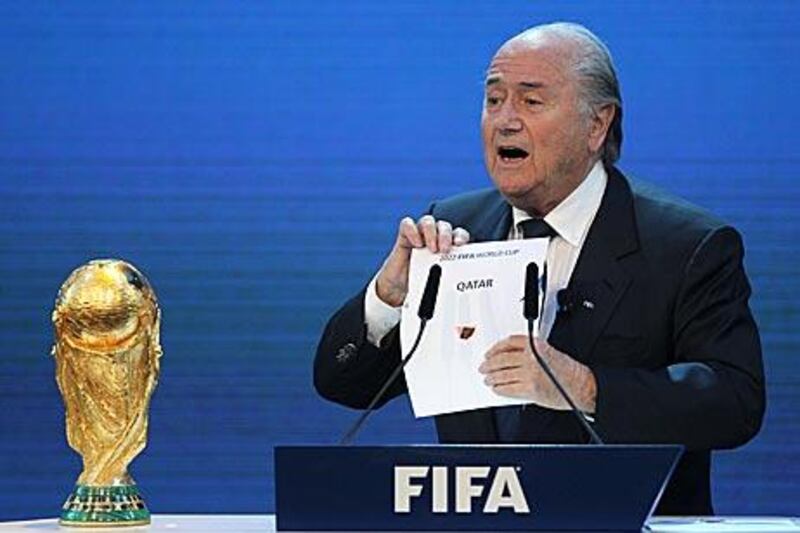Qatar will see a burst of economic growth from its successful bid for the 2022 FIFA World Cup, with stadium development, increased tourism and the overhaul of infrastructure all bringing significant new revenue.
Nine new, airconditioned stadiums will be built, and banks expect government investment from infrastructure deals alone to reach 100 billion Qatari rials (Dh100.85bn).
"It'll be the mother of all economic booms," said George Nasra, the managing director of International Bank of Qatar.
"They have to invest a significant amount in infrastructure. This means transportation, electricity grids, water networks - even new cities.
"The country will have to go through a major change in infrastructure and maybe a new infrastructure, which will create significant opportunity for a range of companies - contracting companies, design firms, real estate companies and financing companies, among others."
Some of the region's largest infrastructure companies are based in Dubai, which is also expected to benefit.
Traders on the Doha stock exchange were giddy with excitement ahead of the announcement, with the Qatar Exchange Index rising 0.68 per cent to 8,184.91 yesterday.
Staging the world's biggest sporting event will also boost Qatar's international brand, according to Brahim Razgallah, chief economist for the MENA region at JP Morgan.
"The importance is to [Qatar's] advertising, becoming a tourist destination. It'll help the stature of the country and raise its profile," he said. "It could also have some impact on its attractiveness as a business hub in the region to compete with Bahrain and the UAE."
Other bankers added that the increase in tourists, labourers and government development would bring huge benefits for them.
Louis Scotto, head of retail banking at Doha Bank, said: "As a bank, we're very very excited, both on the corporate and the retail side. This will certainly give a shot in the arm [to the sector].
"For the stadiums to be built, that's going to be a huge investment," he added.
Mr Nasra added that the country could see an extra five percentage points of growth in gross domestic product annually.
That would propel an economy that is already projected to grow at 16 per cent this year and 18.6 per cent next year, according to the International Monetary Fund.
However, Mr Razgallah, said that estimate was "quite optimistic".
"Usually the direct impact on growth is relatively moderate," he said, noting that additional GDP growth to South Africa has been estimated at less than one percentage point.
However, with Qatar's demands for construction workers set to balloon, other nearby countries could also see substantial benefits.
"This is a small country that relies on expatriates. It'll be beneficial to labour-exporting countries in the Indian subcontinent and Asia," Mr Razgallah said.
He added that the amount of investment by Qatari government could swell as cost estimates are revised.
"Usually whether it's the World Cup, the Olympics or any other big event, usually the initial bid... underestimates the final cost," he said.
ghunter@thenational.ae





